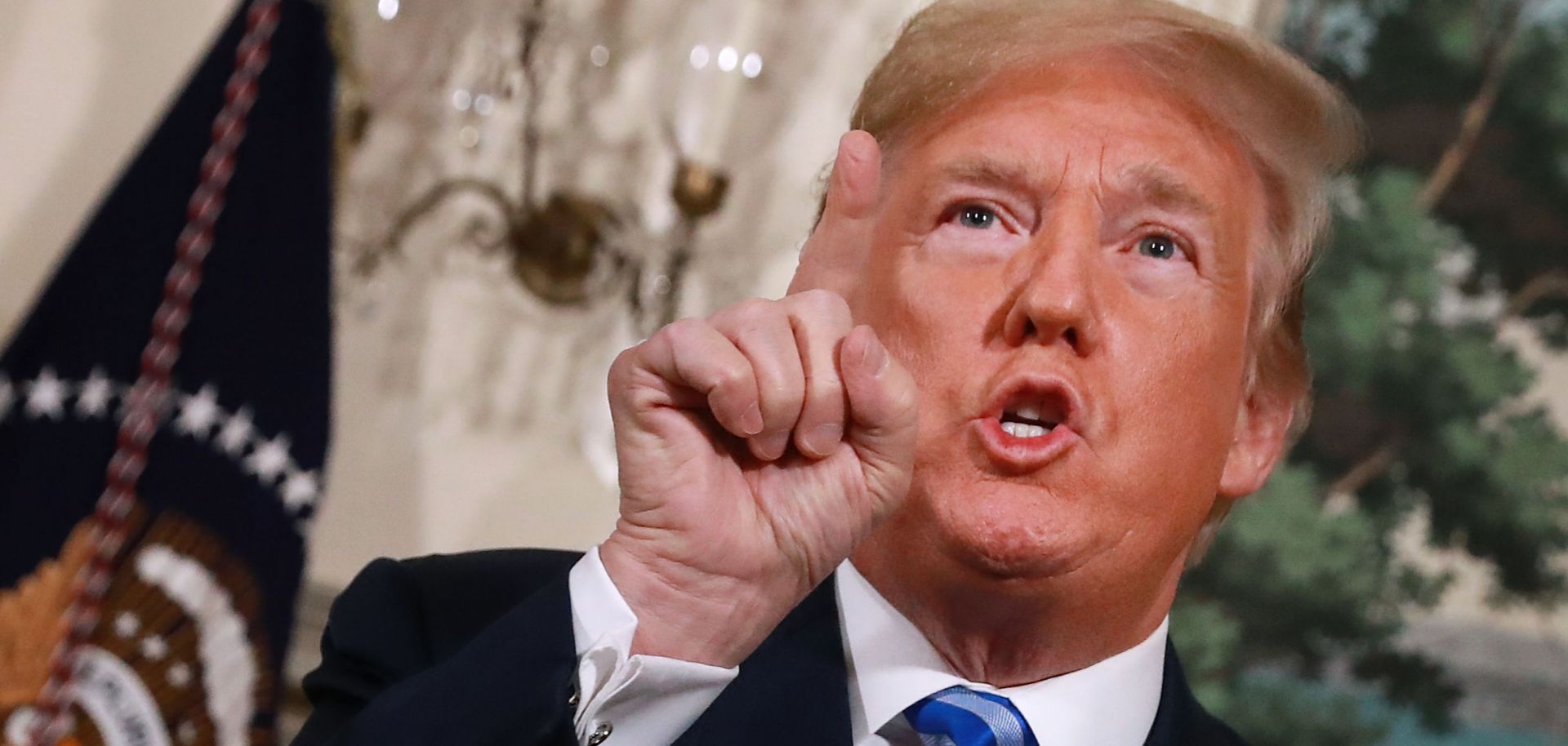REFLECTIONS
Deciphering the War of Words Between the U.S. and Iran

Jul 24, 2018 | 21:09 GMT

U.S. President Donald Trump announced he was withdrawing the United States from the Iran nuclear deal on May 8, 2018. Trump's bellicose rhetoric against Iran fits neatly with the White House's Iran strategy to date.
(CHIP SOMODEVILLA/Getty Images)
Highlights
- The White House's bellicose threats against Iran are not simply a foreign policy diversion to distract from growing scrutiny over the Russia and North Korea portfolios; they are part and parcel of the Trump administration's blunt drive for regime change in Tehran.
- As economic and social pressure in Iran intensifies under the White House's hard-line sanctions policy, the Iranian government will lock public anger onto external threats to curtail popular unrest.
- Iranian President Hassan Rouhani will steadily lose political ground to hard-line conservatives as his government is forced to increasingly rely on the security apparatus to contain dissent and circumvent sanctions.
- The probability of Iran attempting to shut the Strait of Hormuz remains low for now, but potential Iranian moves to harass naval vessels in the area, target Gulf energy infrastructure and ramp up parts of its nuclear program could risk inviting a U.S. military response.
- A serious U.S. military escalation against Iran will hinge on the White House's willingness and ability to keep North Korea on a negotiating track. Russia will likely reemerge as an additional complicating factor to U.S. policy on Iran.
Proceed to sign up
Register NowAlready have an account?
Sign In